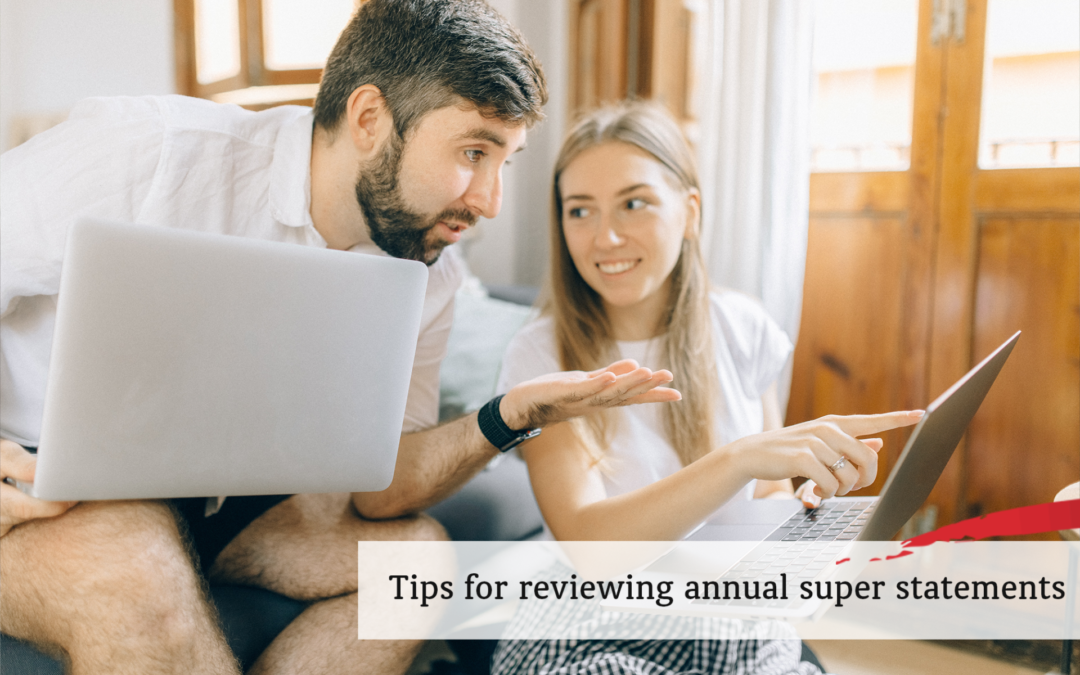
Many of us dream of retiring one day. But how many of us can confidently say we know what’s going on with our super funds? Our Superannuation expert, Christina Tran, gives her best tips on how to better understand your super.
Well if you want to retire comfortably (let alone early!) then paying attention to your super is vital. In fact, the earlier you start, the better you are in a position to reap all the benefits. See the thing with super is that once it’s all set up, you can ‘set and forget’ and let time + compounding work its magic.
However, the problem is that most Australians don’t pay actively pay attention to superannuation. I remember a time when I had just gotten my first job and started to receive my super statements in the mail, skimming through all the information and then chucking it all in the bin without really understanding what it all meant. It’s safe to say that I wasn’t the only one. Most young Australian’s don’t actively engage with their super and sadly many people often leave it too late which leaves them with limited options to maximise the most tax-effective investment vehicle available.
And this is why superannuation is so important and what better time to start then… NOW!
This time every year around September- October super funds will start emailing out their annual statements.
So this year, rather than doing the usual 30 second skim, why don’t we try a new approach and actively engage with our super funds, be informed and make changes (if necessary).
Introducing my best tips on reading and understanding your annual superannuation statement:
- Investment performance – reviewing the performance of your investments within super is the first step in determining whether your super fund and the underlying investments are right for you. You should ask yourself the following questions: What is your investment timeframe (how long until you retire)? How comfortable are you with risk? What investment returns to do you expect? Are you satisfied with this year’s returns? What were the benchmark returns for that investment? Did your investment meet the benchmark return? How did it compare with other investment options in other super funds with a similar asset allocation (like-for-like comparison)?
- Super contributions – just because your fortnightly payslip says that your employer is paying you super, doesn’t mean they have. It is important to ensure that your super fund is actually receiving your super contributions, whether it be Super Guarantee (SG), salary sacrifice or voluntary contributions. There have actually been several instances where employees have checked their accounts only to realise that their employers had never paid them a cent of superannuation, despite what their payslip suggested.
- Insurances – you are able to hold Life, TPD and Income Protection inside your super fund. By reviewing your insurances, you can assess whether you hold an appropriate level of cover, are paying a fair amount in premiums and understand the features (waiting periods, benefit periods, definitions etc) of the policy to make an overall assessment on whether this is appropriate for your personal circumstances.
- Beneficiary nomination – your nomination details whom you would like to receive your super benefits in the event of your death. Keeping the nomination up to date ensures that your super doesn’t fall in the hands of an unintended beneficiary. If you haven’t made a nomination, then upon your passing, your super fund trustee will decide where to pay your super benefits. If you are undecided, you can also nominate your estate/ legal personal representative who then uses your Will to determine where your super money goes.
- Fees – several fees are payable within super such as membership fees, admin fees (% or $), investment fees, contribution fees to name a few examples. This can seem a little overwhelming so it’s important to look at the overall fees and compare them with other alternatives to determine whether your super fund is good value for money. In broad terms, the lower the fees, the higher your returns… and if you do switch/ consolidate your super funds, any fee savings will only further compound your wealth over time.
My other super tips:
- Don’t get lost in chasing the ‘highest return’ – Whether it be the plethora of investment options available or the highest performing super fund. No investment or super fund will continually rank #1 every year so just pick something you are comfortable sticking with over the long term. Remember, there may be investment switching fees, tax implications or transaction costs that could eat away at your balance if you were to regularly switch in/ out of investments.
- Don’t try and time the market – Yes, we are living in unprecedented times when it comes to the COVID pandemic. However, last year would’ve been the worst time to freak out and switch to 100% cash. In fact, many people who did switch to cash are still holding onto cash and have missed the 20%+ returns in the past year. No one knows where the share market will go next month or next year, however, we do know that over the long-term, the market always goes up.
- Don’t check your super every day – Being engaged with your super fund is great but don’t get addicted. The share market can easily +/-2% on any normal given day. It’s nothing to panic and react over as this is 100% normal market activity. It’s too easy to obsess and over-think it but some of the worst mistakes have been made out of fear. Get comfortable with the ups and downs as it’s not timing the market it’s time in the market the counts! Checking your superannuation quarterly or half-yearly is fine.
- Having multiple super funds – Due to people working many different jobs over their lifetime, it’s not uncommon to find that you have more than 1 super fund. In some instances, such as for insurance, this may be okay however if you do have multiple super funds laying around, it’s important to tidy them up. Having multiple funds and therefore paying multiple fees over your lifespan can easily rob you of $100K of dollars over your lifetime. This can impact how early you retire, the number of holidays you are able to take or how much spending money you have in retirement. Such a small change can have such a huge financial impact on your retirement.
- Withdrawing funds from super – Yes the government allowed individuals to withdraw up to $20K last year if you were out of a job and were absolutely desperate for funds. However, statistics show that most of the withdrawn funds were wasted and have not yet been re-contributed back to super. This could’ve been worth a lot more than $20K if it was left within super (some say $40K -$180K by the time you retire – depends on your age). So I highly encourage you to think long-term when it comes to super and don’t even think about touching it until you hit preservation age (60 in most cases).
My final point – right now, you are probably working and retirement may be decades away. However, there will come a day when it’s time to hand in your retirement resignation and no longer rely on your fortnightly paycheque. That’s when superannuation kicks in and your superannuation income stream will now replace your fortnightly paycheque. Your income stream and how much you can get paid from that (in form of a pension) is 100% completely reliant on the actions you take today… so make it count!
If you would like any assistance with getting your superannuation in check to ensure your comfortable retirement – whether you’re young and starting out or whether you are honing in on retirement, please drop us a message, we are happy to assist.

Christina has featured on a few episodes of Catapult | ED: NextGen podcast. Want to find out what to look for in your first super fund, and how the right fund can make a big difference over the years? Listen here.

